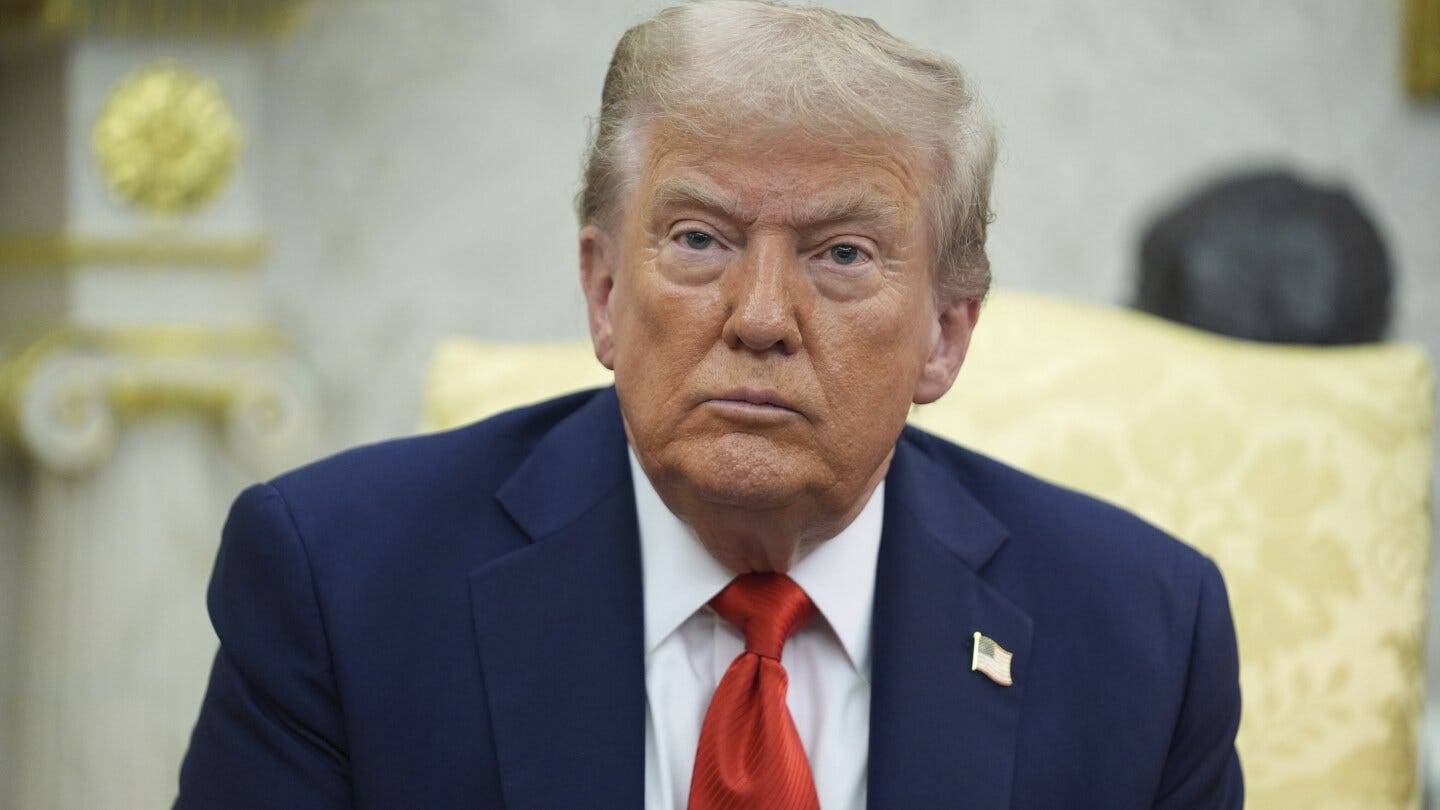Is the Presidency Too Powerful?
Why Trump's Tariff Case Should Terrify You
Let's talk about power. Specifically, the terrifying question of just how much power sits in the hands of one person: the President of the United States. Trump's tariff battle at the Supreme Court isn't just a dry legal fight; it's a direct challenge to the very idea of how our government is supposed to work, and it has profound implications for all of us. Join me as we unpack why this case matters deeply to your future.
A Challenge to Our Republic's Soul
Imagine a world where one person, the President, could unilaterally reshape our entire economy, raising prices on everything from your electronics to your groceries, all without explicit approval from Congress. Sound far-fetched? Well, that's precisely the power the Trump administration is asking the Supreme Court to affirm in its ongoing battle over tariffs.
This isn't just about trade policy; it's about the very heart of American democracy: the separation of powers. It's a fundamental question that cuts to the core of what kind of government we want to live under. As I see it, the implications of this case are enormous, not just for legal scholars, but for every single one of us.
When a Single Hand Controls the Helm
There's an undeniable appeal to decisive leadership. In a complex world, the idea of a single, strong hand guiding the nation, especially in quick-response economic or foreign policy, can be comforting. We often wish for a leader who can cut through bureaucracy and act swiftly to protect national interests or stimulate growth.
However, this allure carries a significant danger. When too much power is concentrated, the line between efficiency and tyranny blurs. History is littered with examples of leaders who, given broad discretion, overstepped their bounds and undermined the very freedoms they swore to protect. This is why our founders, acutely aware of the dangers of concentrated power, designed a system that deliberately makes action difficult, requiring cooperation and consent.
When the legislative and executive powers are united in the same person, or in the same body of magistrates, there can be no liberty; because apprehensions may arise, lest the same monarch or senate should enact tyrannical laws, to execute them in a tyrannical manner.
– Montesquieu,
The Ingenuity of Checks and Balances
Our Constitution isn't just a dusty old document; it's a living blueprint for preventing unchecked power. The brilliant design of checks and balances—dividing authority among the Executive, Legislative, and Judicial branches—was never meant to be efficient in a corporate sense. It was designed to be resilient and to protect your liberties by forcing deliberation and consensus.
When it comes to trade, Congress, your elected representatives, is explicitly given the power to "regulate Commerce with foreign Nations." This isn't a suggestion; it's a direct command. If a President can simply bypass Congress to impose massive tariffs, it not only undermines the legislative branch but also diminishes your voice in shaping the economic policies that directly impact your household.
What's Truly at Stake in the Tariff Wars
This isn't an abstract legal debate for Washington insiders. The Supreme Court's decision will have tangible effects on your daily life and the future of American governance. If the Court grants the President sweeping, unilateral power to impose tariffs, it means a future administration could radically alter our economic landscape on a whim, without the checks and balances our founders so carefully crafted.
This case will define whether America's economic policy is steered by deliberative democracy or by presidential decree. It sets a precedent that could embolden future presidents to claim similar unchecked powers in other areas, from environmental regulations to healthcare. This erosion of congressional authority is a profound threat to the democratic process, leaving citizens with fewer avenues to influence critical decisions.
The Judiciary's Solemn Duty
The Supreme Court now holds a crucial responsibility. It must decide if the pursuit of executive efficiency outweighs the constitutional imperative of divided power. Their ruling will either reinforce the boundaries that protect us from potential overreach or dangerously expand the scope of presidential authority. I believe they have a solemn duty to uphold the spirit, not just the letter, of the Constitution.
The greatest dangers to liberty lurk in insidious encroachment by men of zeal, well-meaning but without understanding.
– Justice Louis Brandeis
Brandeis's warning resonates powerfully here. Well-intentioned actions, when they erode foundational principles, can lead to the slow, imperceptible loss of liberty. This case is a test of our institutions' ability to resist such encroachments.
Go Deeper
Step beyond the surface. Unlock The Third Citizen's full library of deep guides and frameworks — now with 10% off the annual plan for new members.
Looking Ahead: Vigilance in the Republic
As citizens, we often feel disconnected from these high-stakes legal battles, but they are our battles. They determine the very fabric of the society we live in. We must remain vigilant and informed about how power is wielded and how our constitutional safeguards are defended. The Supreme Court's decision on tariffs will be a landmark moment, revealing much about the resilience of our republic. Let's hope it chooses wisdom over expediency, and safeguards the fragile balance that keeps us free.



